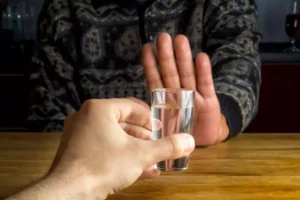15 Sep I Feel Drunk But I’m Sober Auto Brewery Syndrome Causes, Diagnosis & Treatment

You might feel happy, more social and confident, and less inhibited. This is because alcohol stimulates the release of dopamine and serotonin, which are sometimes referred to as your “feel good” hormones. The effects of alcohol can last from a few hours to longer, depending on various factors, including the amount consumed, individual metabolism, and overall health.
Symptoms of auto brewery syndrome
You wake up in the morning with a pounding headache, sick to your stomach, with some unidentifiable sauce all over your face. You check your phone to see thirty new numbers in it of people who you have never heard of. You remember that “cutie” from the bar and your stomach starts to hurt even worse. After eating half of your body weight, you slip into food coma. But food coma is ten times as worse than drunk feeling usual because you are wasted.

Understanding the Experience of Being Drunk
For some people, it is helpful to stop drinking when they start feeling tipsy or are in the euphoric stage. While there isn’t a guarantee you will be below 0.08 BAC at this stage, it is a good marker to prevent some of the harmful effects of alcohol if you continue drinking. Consuming large amounts of alcohol or engaging in binge drinking behaviour can also lead to long-term physical health complications.
Scan the QR code to get started!
Being tipsy refers to the early stages of intoxication, where you feel relaxed, social, and slightly impaired. Being drunk means the effects of alcohol are much stronger, and you may have impaired motor skills, judgment, and coordination. Many people are curious about how alcohol affects the body, both physically and emotionally. In this article, we’ll break down the experience of being drunk, how it feels at various stages of intoxication, and the risks that come with alcohol use. Feeling drunk without drinking is typical in a medical condition called auto-brewery Alcoholics Anonymous syndrome. Besides, you may also experience this drunken feeling if you lack sleep, suffer from sleep drunkenness, or are dehydrated.
- In such cases, the liver can’t clear out alcohol fast enough.
- When that first drop of delicious alcohol hits your tongue, your mind and body are taken to another place.
- It’s important to note that having risk factors doesn’t guarantee developing AUD, but awareness can help in prevention and early intervention.
- Moderate consumptionis defined asone drink daily for women or two drinks daily for men.
- For questions or concerns regarding health, please consult a doctor or medical professional.
What Are the Legal Consequences of Alcohol Abuse?
Your BAC definitely plays a role in drunkenness, but isn’t the only factor in how drunk you feel. No matter your size, your liver will only digest one standard drink per hour. This alcohol evaporates from your blood through your lungs and moves into your breath.
Emotional Swings and Instability

In the last several decades, researchers documented only a few cases in the research journals. At a BAC of 0.45 or above, you are likely to die from alcohol intoxication. Excessive alcohol use causes approximately 88,000 deaths annually in the United States, according to the Centers for Disease Control and Prevention (CDC). It can be helpful to know the signs of being drunk so you can avoid possible harm to yourself by continuing to drink. Upon first use, the consistency is somewhat thin, but that works to its advantage, as it absorbs instantly and layers seamlessly with other products.
How Alcohol Affects the Body
But don’t worry, because, with a few quick fixes, you’ll be able to get rid of this problem. This article will explain all you need to know about feeling drunk without actually drinking. While some find it fun to get a buzz from drinking alcohol from time to time, consuming too much of it can be downright dangerous. As you drink, alcohol goes into your bloodstream and affects your brain and body functions. When you drink a lot, your body and brain functions slow down considerably.
Health Risks of Excessive Drinking
Different drunk personalities require specific approaches for safe and positive interactions. Understanding how to handle various alcohol-influenced behaviors can help maintain a harmonious environment and promote responsible drinking habits. Binge drinking, defined as consuming large amounts of alcohol in a short time, can rapidly overwhelm the body’s ability to process alcohol. This sudden influx can result in more pronounced behavioral changes and impaired judgment. Sloppy drunks lose coordination and control as they consume alcohol. Personal appearance often suffers, with disheveled clothing or messy eating habits.

- “Urinary issues such as chronic UTIs and not being able to empty your bladder so you have to keep going back to the bathroom several times every hour!
- This can manifest as increased sociability in some individuals or aggression in others.
- Drinking water can help mitigate dehydration, but it doesn’t reduce intoxication.
- An individual going into hypoglycemia may appear to be drunk.
- After our testing period, users said their skin looked more hydrated, brighter, softer, and plumper, with a noticeable reduction in dullness.
- Especially when I eat a large meal my symptoms usually act up more.
In addition, eating a large meal causes more blood to be redirected to the digestion process, leading to an increase in POTS symptoms. Symptoms like dizziness, lightheadedness, exhaustion, blurred vision and shakiness can all feel like being drunk, even if you haven’t had a drop of alcohol. “Coat hanger pain is something I deal with often the more I’m upright, and I didn’t know it was a symptom of POTS until recently. For me it’s an aching pain at the base of my skull spreading https://ecosoberhouse.com/ out into my shoulder blades and upper back.” — Katie E. Own Your Limits is a Defense Department (DOD) education campaign, aligned to the Defense Health Agency, for the U.S. military.

